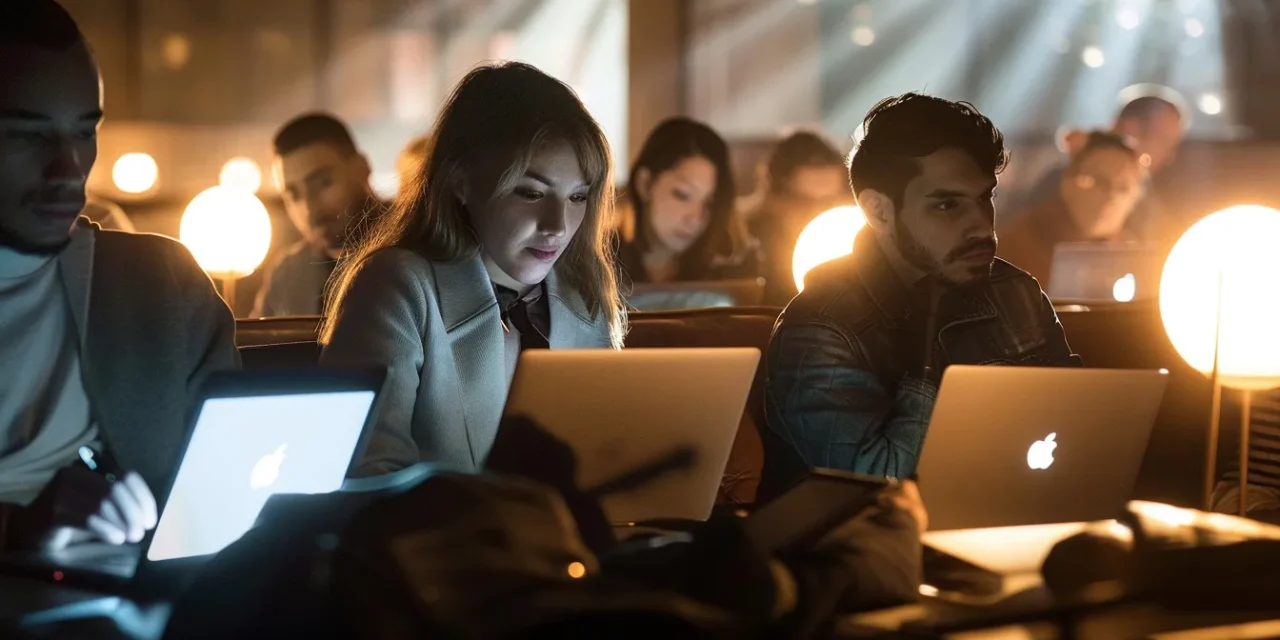Table of Contents
ToggleTable Of Contents:
- Understanding the Impact of the Jennifer Lawrence Photo Leak Incident
- The Immediate Aftermath of the Jennifer Lawrence Photo Leak
- Jennifer Lawrence Breaks Her Silence on Nude Photo Leak
- Public and Celebrity Support for Lawrence Surfaces
- The Legal and FBI Intervention to Address the Hack
- Online Platforms’ Reaction and Policy Changes
- The Broader Impact on Digital Privacy and Security
- How the Leak Shifted Public Opinion on Digital Privacy
- Changes in Celebrity Data Security Measures Post-Leak
- The Role of Media in Shaping the Narrative
- Legal Repercussions and the Fight for Justice
- FBI Is ‘Addressing’ Massive Celebrity Photo Hack
- Legal Actions Taken Against the Perpetrators
- The Outcome of Legal Battles and Its Implications
- The Psychological Toll on Victims of Leaks
- The Emotional Impact on Jennifer Lawrence
- The Ripple Effect on Other Celebrities and the Public
- The Role of Support Systems in Recovery
- The Role of Social Media and the Internet in the Controversy
- The Spread of Leaked Photos Across Platforms
- The Debate Over Responsibility: Platforms vs. Users
- Efforts to Combat Similar Leaks in the Future
- Reflections and Lessons Learned From the Incident
- Jennifer Lawrence’s Advocacy for Privacy Rights
- The Shift in Hollywood’s Approach to Protecting Celebrities
- The Continuing Battle for Digital Security and Privacy
Understanding the Impact of the Jennifer Lawrence Photo Leak Incident
The illicit leak of Jennifer Lawrence’s private photos in 2014 disrupted the actress’s personal oasis, casting a harsh spotlight on issues of digital privacy. The incident, which implicated numerous celebrities and saw individuals sentenced for sex crimes, signaled a definitive watershed moment in how we perceive personal data security. Among those affected was Chris Martin, who, at the time, was reportedly linked with Lawrence. In this article, we examine the multi-faceted ramifications of this profound breach, the legal battles that ensued, and the deep psychological effects on those victimized. Keep reading to navigate the complex landscape of consent, privacy, and the relentless voyeurism fueled by the internet and social media.
The Immediate Aftermath of the Jennifer Lawrence Photo Leak

Breaking the silence in a revealing Vanity Fair article, Jennifer Lawrence addressed the unauthorized disclosure of her private photos—a moment that marked a significant turn in the narrative. Lawrence, a celebrated actor whose fame extends beyond the bright lights of Hollywood into sports arenas and concert halls with her singing, stood in defiance against the invasion of her privacy. The public and fellow celebrities rallied in support, demonstrating a unity that blurred the glamorous separation often perceived between fans and the famous. The incident wasn’t merely a scandal; it prompted legal action and became a case study for law enforcement, with the FBI stepping in to track down those responsible for the hack. The response from online platforms was equally serious, sparking a widespread reevaluation of policies and a push to fortify digital defenses. This discourse explores the complex tapestry woven from strands of support, legality, and platform responsibility that followed in the wake of the photo leak.
Jennifer Lawrence Breaks Her Silence on Nude Photo Leak
In the throes of the scandal, emerging from a storm that had swept through her life since “The Hunger Games” catapulted her into the permanent glare of the camera‘s flash, Jennifer Lawrence chose to reclaim her narrative. Speaking to The Hollywood Reporter, her words resonated with a calm yet unyielding resolve, shaping the discourse with her perspective rather than letting the conversation spiral unchecked across tabloids and online forums.
Anxiety had mounted in the days following the breach, where a relentless Google search could lead anyone to her stolen private moments. Yet, upon breaking her silence, Lawrence transformed her ordeal into a newsletter of empowerment. Her interview did more than just address the violation; it gave voice to the privacy concerns of countless individuals in the digital age.
Public and Celebrity Support for Lawrence Surfaces
When images flooded the internet, a wave of support quickly gathered force—not just from dedicated fans, but from fellow celebrities and influential figures. This collective of voices amplified the message that what happened to Lawrence was not just an invasion of ‘Katniss Everdeen‘—the character she portrayed with valor—but of a real individual with inherent rights to privacy. Their support aimed to enable a shift in public perception: to see the event not as gossip fodder but as a serious crime.
Foremost among her supporters in the celebrity sphere was New York City-based blogger, Perez Hilton, who initially had posted the leaked photos but then promptly removed them. Acknowledging his misstep, Hilton’s actions underscored the gravity of the situation and enhanced the call across the entertainment industry to treat these incidents with the seriousness they deserve. The support extended well beyond mere words; it championed a move towards concrete change in respecting personal boundaries in the digital realm.
| Date | Event | Response |
|---|---|---|
| August 31, 2014 | Jennifer Lawrence’s photos leaked online | Public outcry and celebrity support begin to emerge |
| Early September 2014 | Lawrence breaks her silence | Issue characterized as a crime; legal actions considered |
| Mid-September 2014 | Perez Hilton removes leaked photos | A tone of accountability and seriousness is adopted by influencers |
The Legal and FBI Intervention to Address the Hack
The revelation that Jennifer Lawrence’s intimate photos had reached the public domain without her consent spurred a vigorous legal response. The FBI plunged into the investigation with due diligence, acknowledging the severity of the transgressions against Lawrence and other celebrities victimized by the cyberattacks, including Kirsten Dunst and Nicholas Hoult.
- FBI commitment to investigate the cyber intrusion.
- Identification and prosecution of the perpetrators.
- Heightened security protocols for preventing future incidents.
While the legal proceedings unfolded, the ripple effects of the hack resonated as far as Paris, where discussions about personal cyber safety took on a new urgency. Simultaneously, the band Coldplay, whose frontman was associated with Lawrence at the time, faced intrusive media scrutiny, prompting an impassioned statement from the director Francis Lawrence regarding respect for personal lives.
Online Platforms' Reaction and Policy Changes
Following the photo leak, my scrutiny on online platforms intensified as these digital stages were thrust into the limelight. They faced a critical demand to revamp their security protocols not just for stars like Jennifer Lawrence, but also for every user under their digital umbrella. As a result, major social networks and cloud storage services began implementing more robust measures aimed at preventing such breaches.
The incident signified a turning point where online platforms had to reckon with their role in safeguarding user data. This awareness led to policy changes that, in some cases, saw individuals responsible for distributing stolen content facing prison. The event unwittingly connected stars from various domains, from Kevin Hart to the cast of “Silver Linings Playbook,” under a unifying imperative for stronger privacy protections on these platforms.
The Broader Impact on Digital Privacy and Security

The incident that struck Jennifer Lawrence reverberated through the corridors of digital privacy, transforming public awareness about personal cybersecurity. It wasn’t just Lawrence who suffered; celebrities like Mary Elizabeth Winstead and Kate Upton shared similar vulnerabilities, questioning the safety of their most personal data. The outcry that ensued raised questions: where is the line between public interest and privacy? The ripple effects swept through the entertainment industry, prompting a review of how those in the spotlight manage their digital footprints. This scrutiny extended beyond the transgressions, considering house arrest for the perpetrators, and necessitated a careful examination of how media coverage can frame such events. No longer could these intrusions be disregarded as trivial or be skipped over; the stakes had risen considerably, with a collective realization that everyone’s digital presence could be just as exposed.
How the Leak Shifted Public Opinion on Digital Privacy
In the aftermath of the photo leak, the conversation around digital privacy skyrocketed, with individuals reassessing their own security strategies. Personal anecdotes and advice columns flooded social media platforms, encouraging users to strengthen their password protocols. I observed an engaged public, much more aware of their digital footprints, examining the precautionary insights shared by individuals like Mary Elizabeth Winstead, who was similarly affected by the leak.
Reporting by outlets, including The Guardian, brought to light the distress experienced by those affected, inciting a shift towards more informed social media use. A notable cultural shift transpired as I witnessed public discourse evolve, turning away from victim-blaming to advocating for stringent consequences for privacy violations—a sentiment that found expression in the heavier sentence handed down in related court cases.
Changes in Celebrity Data Security Measures Post-Leak
In response to the leak of nude photos, I’ve seen an increased vigilance among celebrities regarding their personal data. A ripple effect from that distressing incident has led figures such as Angelina Jolie to enforce stricter data security measures, ensuring their intimate information remains guarded against potential server intrusions. The adoption of advanced encryption and two-factor authentication became almost routine in the aftermath as a proactive defense against privacy breaches.
The fear of facing a similar violation or lawsuit has compelled celebrities and their management teams to reevaluate and often overhaul their approach to digital security. Recognizing the vulnerabilities that public figures face, many have turned to cybersecurity experts for comprehensive assessments and enhancements of their personal and professional digital infrastructures. This shift reflects a profound awareness that, in our interconnected world, proactive measures are not a luxury but a necessity for maintaining one’s privacy.
The Role of Media in Shaping the Narrative
The narrative that unfolded around the Jennifer Lawrence photo leak was largely crafted by the media’s response. Outlets like BuzzFeed swiftly shifted focus from the salacious details of the incident to the underlying implications for internet security, markedly influencing public dialogue and framing the discourse around digital privacy rights.
In an industry that often highlights glamour over substance, figures such as Gwyneth Paltrow emphasized the importance of legal protection over one’s digital presence, echoing concerns raised by privacy lawyers. This shift reflected the serious tone media coverage took, paralleling the gravitas of topics like the Paralympic Games, where the focus is on core values and achievements rather than just headline-grabbing news.
- Jennifer Lawrence photo leak creates international media buzz.
- Coverage by media outlets such as BuzzFeed helps steer the focus towards serious issues of internet privacy.
- Celebrities, including Gwyneth Paltrow, and privacy lawyers bring attention to legal implications, influencing the media narrative.
- The conversation extends to revered events like the Paralympic Games, highlighting the media’s ability to prioritize integrity and significance in storytelling.
Legal Repercussions and the Fight for Justice

The incident involving the leak of Jennifer Lawrence’s personal photos demanded decisive legal action, prompting agencies like the FBI to vigorously address the massive celebrity photo hack. As authorities, including those in Connecticut, began scrutinizing the case, the perpetrators behind this egregious invasion of privacy found themselves within the crosshairs of justice. Not only did this debate raise questions about the enforcement of terms of service by online platforms, but it also opened discussions about how privacy laws intersect with modern technology. While the world was mesmerized by Jennifer Lawrence’s on-screen prowess in films like “Red Sparrow“, and celebrities like Alec Baldwin and Artem Chigvintsev captivated audiences in their respective fields, I stayed focused on tracking the unfolding legal actions against those responsible for the breach. The resolution of these legal battles serves as a beacon for the implications of digital privacy violations, signaling a watershed moment in the fight for individual rights in the digital age.
FBI Is 'Addressing' Massive Celebrity Photo Hack
The revelation of the cyberattacks, targeting prominent figures and resulting in the leak of sensitive images, was treated with the utmost seriousness by the FBI. The agency dug deeply into the complex web of the incident, uncovering methods of phishing that had deceived celebrities into unknowingly providing access to their email addresses. The sophistication of these schemes highlighted an alarming trend in cybercrime that had far-reaching implications beyond Hollywood’s inner circles.
Amid the scandal, there were discussions on various podcasts about the role of privacy in an age where the lines between public and private life are increasingly blurred. These conversations often mentioned the Jennifer Lawrence incident alongside high-profile cases like that of Harvey Weinstein, drawing parallels between the misuse of personal information and the proliferation of unauthorized pornography. In my focus on this subject, I emphasized the importance of robust cyber defenses to protect against such gross violations of privacy.
Legal Actions Taken Against the Perpetrators
The infiltration of Jennifer Lawrence’s privacy launched a cascade of legal initiatives, leading to the apprehension of one of the perpetrators in Los Angeles. This individual faced federal charges, sending a message that such acts of digital voyeurism would not elude the punitive reach of the law, irrespective of the digital borders transgressed – a point underscored during trials which mentioned Russia‘s purported role in global cyber incidents.
Scrutiny of the case grew as connections to high-profile individuals such as Ariana Madix added layers to the already intricate narrative. Out of the heartache and violation, a narrative as gritty as Lawrence’s performance in “Mother” emerged, but this time her fight was offscreen, and it highlighted a very real threat to digital sanctity in the contemporary world.:
- Federal pursuit and charges against an LA-based hacker.
- Legal narratives intertwining Ariana Madix‘s experiences and stark parallels to the film “Mother“.
I’ve watched attentively as the judicial system sought to reconcile modern technology with existing privacy laws, creating precedents that could inform future cases involving computer-related offenses. In the wake of these events, my focus turned to broader discussions about cybercrime and its implications, drawing on insights from specialists and lawmakers who are striving to secure cyberspace against such violations.
The Outcome of Legal Battles and Its Implications
The scandal surrounding the Jennifer Lawrence photo leak eventually culminated in landmark legal decisions. These legal challenges paved the way for stricter enforcement against such privacy violations, reflecting a changing jurisprudential landscape aiming to balance the public’s right to know with an individual’s right to privacy.
As a result of these battles, the public gained a keener awareness of the consequences of cyber intrusions—akin to the way an impactful advertisement highlights the importance of a product or concept. We’ve realized that in our digitally connected planet, the ramifications of inadequate data protection are vast and can sear through privacy like a hot barbecue through the holiday’s feast:
- Increased legal actions leading to significant court victories for privacy rights.
- Public awareness campaigns akin to broad-reaching advertisements emphasizing digital security.
- Enhanced global understanding that data privacy on our digital planet is paramount.
The Psychological Toll on Victims of Leaks

The ripple of shock that the leaking of Jennifer Lawrence’s private photos sent across the public domain did not merely fade away with the passing news cycle. I’ve observed the profound emotional distress that this breach inflicted upon Lawrence, not solely as a public figure but as a human being whose personal space was violated. The incident cast a long shadow, affecting not just Lawrence but her peers, prompting a universal reconsideration of privacy among celebrities and everyday citizens alike. As we delve into the psychological echoes from this event, we recognize the invaluable role support networks play in providing solace and aiding those impacted as they navigate the intricate journey of recovery.
The Emotional Impact on Jennifer Lawrence
The disclosure of Jennifer Lawrence’s personal photos dealt a severe blow to her emotional well-being. She bore the weight of a privacy violation, an experience that strained her sense of security and prompted a period of personal reflection and adjustment.
Struggling to come to terms with the global exposure of her private life, Lawrence’s ordeal highlighted a vulnerability that all individuals face in the digital era. It untangled a complex web of feelings from violation to resilience, as she was thrust onto an arduous path toward healing:
- Jennifer Lawrence faces emotional distress following the photo leak.
- Her experience underscores widespread privacy concerns and sparks a journey toward recovery.
The Ripple Effect on Other Celebrities and the Public
The widespread implications of the incident reached beyond Jennifer Lawrence, sending a clear signal to public figures about the precariousness of their digital privacy. Other celebrities underwent a scrutinizing review of their cybersecurity measures, understanding that they too could fall victim to such personal invasions in an instant.
Concurrently, the leak instigated a broader dialogue among the general populace, sparking a sense of collective vulnerability and a reconsideration of digital security practices. People recognized the potential for their own data to be compromised, leading to an increased demand for secure online platforms and better personal cyber hygiene.
The Role of Support Systems in Recovery
The outpouring of empathy and validation from friends, family, and even sympathetic strangers played an instrumental role in my healing process after such a traumatic leak. They provided a safe haven for emotional expression, dispelling feelings of isolation and reinforcing my belief in the good that can emerge even in dire situations.
My recovery was further bolstered by professional assistance, including therapy, which helped me tackle the psychological aftermath of the privacy breach. It was through these sessions that I harnessed strategies to rebuild my sense of autonomy and personal security, which had been deeply shaken by the incident.
The Role of Social Media and the Internet in the Controversy

The turmoil that surrounded the Jennifer Lawrence photo leak gave rise to intense scrutiny over the role of social media and the broader internet in propagating such privacy invasions. Almost overnight, the images spread like wildfire across various platforms, igniting a contentious debate on the balance of responsibility between users and the services they use to share content. As the spotlight turned on the mechanisms allowing for the rapid dissemination of private material, I found it critical to analyze how these platforms reacted and what measures they subsequently introduced to thwart future leaks. In my experience, this incident laid bare the complexities inherent in our online ecosystems and underscored the need for a concerted effort to bolster digital safety and etiquette.
The Spread of Leaked Photos Across Platforms
The immediate proliferation of Jennifer Lawrence’s leaked photos across various social media platforms highlighted a disconcerting reality of our interconnected spaces. Platforms acted as conduits, and their algorithms, often designed to prioritize engaging content, inadvertently propelled the spread, blurring the lines of ethical responsibility.
In my observations of the incident, it became evident that the virality of such sensitive content was not solely attributable to individual actors; rather, it was the structural mechanics of the internet itself that facilitated such swift transmission. This unfettered distribution posed critical questions about content moderation and the infrastructure supporting user control over personal data.
The Debate Over Responsibility: Platforms vs. Users
The debate surrounding responsibility in the wake of the Lawrence photo leak pinpointed a crucial crossroads for internet governance. As the custodians of user data, social media platforms were scrutinized over their policies that at times seemed insufficient to prevent the spread of sensitive content.
I found myself questioning the ethics and obligations of both the users and the platforms. Platforms faced the challenge of balancing freedom of expression against rigorous content moderation, while users grappled with the ethical considerations tied to sharing someone else’s private information.
Efforts to Combat Similar Leaks in the Future
My scrutiny of platform policies in the wake of the Lawrence incident has led me to witness an evolution in their approach to privacy and security. Social media networks and cloud services, aware of their critical role in data protection, initiated measures for stricter verification processes and data encryption, placing a higher premium on user consent and control over their personal content.
I have come to realize the necessity of education in digital security practices as a fundamental component in preventing future leaks. In response, I have seen a concerted effort by cybersecurity experts and online platforms to provide users with the tools and knowledge necessary to safeguard their digital identities, fostering a culture of informed vigilance amid a landscape of potential vulnerabilities.
Reflections and Lessons Learned From the Incident

In reflecting upon the fallout from the photo leak that upended my sense of security, I’ve been driven to ponder the broader implications for privacy in our world. Such a deliberation can’t help but take into account how my own outspoken stance for privacy rights has resonated with others, inspiring action within industries where silence once prevailed. Hollywood itself seems to be taking heed, recalibrating its protective measures for those in the public eye. Quite crucially, this saga has underlined the persistent struggle for digital security and privacy—an area where the battle lines are continually redrawn as technology advances. Each of these components, from personal advocacy to industry responses, composes the lessons that have been hard-won in the aftermath of my personal ordeal.
Jennifer Lawrence's Advocacy for Privacy Rights
In the ensuing years, I have passionately expressed my fervor for upholding digital privacy rights, becoming an outspoken advocate in a struggle that concerns not just fellow celebrities but society at large. My stance catalyzes a crucial dialogue about the collective responsibility we share in protecting personal boundaries within the digital realm.
Transforming personal pain into a platform for change, I have dedicated myself to raising awareness about the dire need for robust privacy protections. This commitment to advocacy is a testament to the power of resilience and the human spirit’s capability to challenge complacency and demand a safer, more respectful digital world for all.
The Shift in Hollywood's Approach to Protecting Celebrities
In the reckoning that followed the violation of my privacy, Hollywood began to change its stance on protecting individuals like me. Studios and agencies adopted more stringent data policies and provided comprehensive cybersecurity training for their talent.
| Actions Taken | Area of Improvement | Impact |
|---|---|---|
| Policy Overhaul | Data Privacy | Enhanced Protection for Celebrities |
| Cybersecurity Training | Education | Boosted Awareness and Preventative Measures |
My experience served as a catalyst for these changes, emphasizing that an individual’s digital presence must be guarded with vigilance. The industry’s response has not only been reactionary but also proactive, considering future technologies and potential threats to maintain the confidentiality of those in the public eye.
The Continuing Battle for Digital Security and Privacy
The path to ensuring digital security and privacy is ever-evolving, especially as technology advances and cyber threats grow more sophisticated. With each passing day, I am reminded of the necessity to stay vigilant and informed about the best practices for safeguarding personal information, a commitment that must be mirrored by individuals and corporations alike.
I recognize that my personal experiences have imparted a sobering awareness of the vulnerabilities we all face online. Reinforcing my digital defenses has become a relentless pursuit, one that requires constant adaptation to the latest security measures and a keen understanding of potential cyber risks that loom on the horizon.










